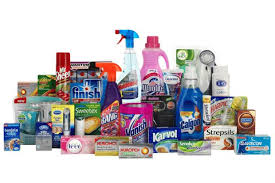MARKETING POLICY
Mention the name Reckitt Benckiser and chances are it’ll draw a blank look from most 0f the Bangladeshies. Yet if they were to open their kitchen cupboards they would probably find at least one of the company’s products in them.
For Reckitt Benckiser is not only the world’s largest household cleaning company (excluding detergents), it also owns some of the best-known health-care brands. Among them are Dettol, Vanish, Woolite, Harpic and Nugget in the house-care market, and Nurofen, Strepsils and Disprin in the health-care sector.
With such an array of well-known brands, it’s not surprising that the company is one of the country’s top advertisers: it is ranked third in terms of adspend among the country’s top 10 advertisers overall. The company has a marketing story. It invests aggressively to create and grow market categories and subsequently to maintain strong number one positions. It is not surprising therefore that the company globally invests about 12% of net revenue in media investment (advertising) to support its brands.
It makes for good business. Since the formation of the company from the merger of the UK’s Reckitt & Colman and Holland’s Benckiser in 1999, revenues have increased from £3bn to £4,2bn in 2005 while net income has more than tripled to £670m over the same period.
It is one of the most consistent performers on the London Stock Exchange. The picture is almost same at the BD operation, which is responsible for countries developement.
Bangladesh is one of the most profitable operations among the 60 countries in which Reckitt Benckiser has a presence. The group has gained market share in recent years. It’s growth rate has been 1,5 times that of the market, which suggests that the company is making inroads into competitors share.
Counting more than 50 products in its portfolio of brands means that marketing is at the heart of what the company does; and the strategy is driven by both global and local imperatives. Globally the company concentrates on five core categories – fabric care, surface care, dishwashing, home care and health & personal care – and it endeavours to make its brands number one or two in their respective markets. The brands that are in these positions account for about 75% of group revenue. There is also a focus on what the company terms its “power brands”, 15 products that are high-margin and are responsible for a large portion of sales.
A third key marketing policy is to ensure a continued flow of new products. Worldwide 40% of net revenues come from brands launched in the previous three years.
The global strategy is augmented by local marketing, which focuses on market specifics. For example”By growing the market for dishwashers through various marketing initiatives we are creating more customers for our products. Similarly, Dettol backs hygiene programmes at schools, an initiative which at the same time serves to create a market for Reckitt Benckiser products.
The company believes that the growth of the bengali middle class in particular should ensure the BD market continues to grow strongly, “particularly as this market is brand and quality conscious”.
“We also have a balanced portfolio which guarantees that sales growth is consistent and not subject to too many cyclical variances,” he adds.
Reckitt Benckiser manufactures about 70% of its products locally, with the rest being imported. As a rule it tries to produce locally and the company has about 47 manufacturing facilities worldwide doing just that. But where specific technologies are needed the RB import those products as it is more cost-effective. For example, The cosmetic products come from the group’s factory in France. Though the company produces the bulk of its products at plants it owns, a portion of its manufacturing work is outsourced.
Sales
The role of the Sales function is to ensure that no matter where a consumer shops around the globe, they find Reckitt Benckiser products merchandised with correct placement, product assortment, and that they are promoted and priced as per our best practice category strategies. This can only be accomplished by strong customer relationships managed by a team of sales professionals utilising the latest superior category concepts and tools.
This is achieved through focusing on 4 key areas:
- Flawless In-store Execution
- Organisational Excellence
- Customer Relationship
- Cost Efficiency
In addition,the sales executives of Reckitt Benckiser involve working with major outlets, to ensure that Reckitt Benckiser products are presented to consumers in the best way possible, by maximising the 4P’s (product, price, placement & promotion) at every opportunity.
They try to present their idea to buyers and use their in-depth sector knowledge to convince them of the truth – that Reckitt Benckiser products are the best. If that are not enough, they might be rolling out a new product launch that takes up even more space on those precious shelves. It can be tough getting major outlets, such as Agora, Nandan, Meena Bazar etc, to listen to their argument and buy in to their ideas. However, Reckitt Benckiser believes that they can win them with in a short period.
















